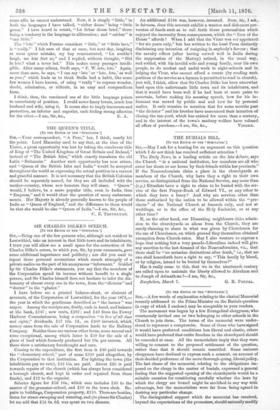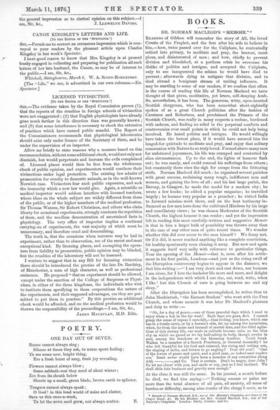[TO TEl EDITOR OF THE"SPECTATOR..'] SIN—A few words of explanation
relating to the clerical Memorial• recently addressed to the Prime Minister on the Burials question (a copy of which I enclose) may be acceptable to your readers.
The movement was begun by a few Evangelical clergymen, who- courteously invited one or two belonging to other schools in the Church to join them. The terms of the memorial were under- stood to represent a compromise. Some of those who have signed it would have preferred conditions less liberal and elastic, others would have preferred that entire freedom in the churchyard should be conceded at once. All the memorialists imply that they were willing to consent to the proposed settlement of the question, rather than that it should remain unsettled. Some eminent clergymen have declined to express such a consent, on account of their decided preference of the more thorough-going, liberal policy.. The last clause of the memorial, relating to the obligations im- posed on the clergy in the matter of burials, expressed a general feeling that the suggested opening of the churchyards would be a suitable occasion for considering carefully whether the laws by which the clergy are bound might be modified in any way with advantage, but the memorialists were far from being agreed in desiring any particular change.
The distinguished support which the memorial has received, beyond the expectations of the promoters, should naturally modify the general impression as to clerical opinion on this subject.—I



































 Previous page
Previous page